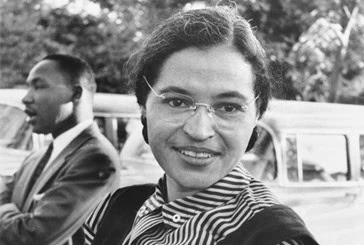Welcome to a journey through the inspiring world of civil rights leaders. This guide offers a comprehensive look at the individuals who have shaped the civil rights landscape, ensuring that equality and justice are not merely ideals but realities.
Why It Matters
Understanding the legacy of civil rights leaders educates us and empowers us. All job seekers must recognize the significance of inclusive workspaces and the historical strides made toward equal opportunities for all.
The Significance of Civil Rights Leaders
Exploring the critical contributions of civil rights leaders reveals their profound impact on promoting equality and justice. These pioneers have bravely challenged societal norms and legal frameworks to ensure rights for all. Civil rights leaders have been instrumental in shaping modern society. From eradicating discriminatory laws to fostering a spirit of unity and respect, their efforts transcend generations.
Understanding Their Legacy
This article delves into the milestones of the civil rights movement, celebrating the individuals who stood at the forefront of change. We’ll uncover their challenges, achievements, and the ongoing influence they wield in today’s movements.
Get ready to be inspired and discover how you can contribute to continuing this vital work in your own career and community.
Key Events in the History of Civil Rights
The journey for civil rights in America has been paved with crucial events that have transformed society and policies. Here are some key historical moments:
The Emancipation Proclamation (1863)
President Abraham Lincoln issued the Emancipation Proclamation, declaring that all persons held as slaves within the rebellious states are and henceforward shall be free. The National Archives can explore this pivotal moment in depth.
The Civil Rights Act of 1964
Significantly, this legislation ended segregation in public places and banned employment discrimination based on race, color, religion, sex, or national origin. It’s considered a landmark in the battle for civil rights. Further Milestone Documents can be seen at the Our Documents Gov.
The March on Washington (1963)
Perhaps one of the most famous events, the March on Washington for Jobs and Freedom, where Dr. Martin Luther King Jr. delivered his iconic “I Have a Dream” speech, highlighted the urgent call for racial and economic justice.
The Voting Rights Act of 1965
This act aimed to overcome legal barriers at the state and local levels that prevented African Americans from exercising their right to vote as guaranteed under the 15th Amendment to the U.S. Constitution.
These events not only marked significant steps forward in the struggle for equality but also inspired further actions and movements worldwide. Additionally, understanding the context of these events helps appreciate the ongoing efforts and challenges within the civil rights arena.
Profiles of Prominent Civil Rights Leaders
Through the evolving history of civil rights, various leaders have stood out for their courage and impactful contributions. Here are several influential figures:
Martin Luther King Jr.
A pivotal American civil rights movement figure, Martin Luther King Jr., advocated for nonviolent resistance against racial segregation. His leadership in the Montgomery Bus Boycott and his inspiring “I Have a Dream” speech during the March on Washington are legendary.
Rosa Parks
Rosa Parks is often celebrated for her decisive role in the Montgomery Bus Boycott when she refused to give up her seat to a white man. Her action in 1955 sparked a city-wide boycott and symbolized resistance to racial segregation.
Malcolm X
As a leader in the civil rights movement, Malcolm X advocated for the rights of African Americans by emphasizing the need for self-sufficiency, self-defense, and human rights over civil rights. His articulate public speeches brought attention to racial injustices in America. Read more about his influential speeches on BlackPast.org.
Cesar Chavez
Cesar Chavez co-founded the National Farm Workers Association to champion farmworkers’ rights. He is renowned for his commitment to nonviolent methods of protest, which played a critical role in achieving labor rights for workers.
These leaders, among others, have fought for equality and shaped the ongoing dialogue about civil rights and justice. They serve as enduring symbols of the struggle and resilience that define the civil rights movement. Consider exploring this Latino cultural terms glossary for further insights into the Latino community’s contributions to civil rights movements.
Challenges Faced by Civil Rights Leaders
The path of a civil rights leader is often fraught with significant challenges. Here, we explore the key hurdles they encountered:
Legal and Institutional Barriers
Many leaders faced restrictive laws designed to suppress civil rights, so legal battles became a core part of the struggle.
Public and Personal Safety
Threats of violence were a constant reality for civil rights leaders. Ensuring personal safety was a critical concern.
Socioeconomic Disparities
Addressing economic inequalities was also a major challenge. Poverty and limited access to resources hindered progress for many communities.
Internal Divisions
Within civil rights movements, differing views on tactics and goals sometimes led to fragmentation, complicating efforts.
Media Representation
Controlling the narrative in mainstream media was a significant challenge. Leaders often struggle to communicate their message effectively.
Civil rights leaders displayed remarkable resilience and adaptability in overcoming these obstacles. These challenges highlighted the complexity and multifaceted nature of advocating for civil and human rights.
Impact of Civil Rights Leaders on Society
The efforts of civil rights leaders have left an indelible mark on society, helping to shape laws, cultural norms, and individual behaviors:
Legislative Reforms
Through persistent advocacy, civil rights leaders have facilitated the passage of key legislation that ensures greater legal protections for marginalized groups.
Shifts in Public Opinion
Leaders like Martin Luther King Jr. and Malcolm X played pivotal roles in shifting public opinion toward support for civil rights issues and promoting a broader acceptance of diversity and equality.
Education and Awareness
Civil rights movements have driven educational reforms, integrating civil rights history into school curricula and promoting awareness campaigns highlighting ongoing struggles and achievements.
Economic Impact
By fighting for equal opportunities, civil rights leaders have contributed to the economic upliftment of historically marginalized communities, enabling better access to jobs and resources.
The impact of these leaders extends beyond legislative victories, fostering a society more aware of the principles of justice and equality. Their legacy continues to inspire new generations to keep pushing for change. For more information on the importance of diversity and inclusion practices, consider checking this resource on US bilingualism attitudes.
Current Civil Rights Movements and Leaders
Today, the fight for civil rights continues with new leaders emerging to address modern challenges:
Black Lives Matter Movement
Founded by Alicia Garza, Patrisse Cullors, and Opal Tometi, Black Lives Matter tackles systemic racism and violence against Black communities.
The Fight for LGBTQ+ Rights
Leaders like Sarah McBride advocate for equality and protection for LGBTQ+ individuals in workplaces, healthcare, and public policies. The Human Rights Campaign provides more information.
Indigenous Rights Advocacy
Figures such as Winona LaDuke work towards the rights and sovereignty of indigenous populations, focusing on environmental justice and cultural preservation.
Disability Rights Movement
Led by activists like Judy Heumann, this movement seeks equal opportunities and accessibility for people with disabilities. The ADA National Network provides a deeper look into their rights.
These leaders and movements push for a more inclusive society, advocating for the rights of all, regardless of their background. For additional insights, visit our article on The Evolving Landscape of Civil Rights in America.
How to Support and Engage with Civil Rights Initiatives
Supporting civil rights is essential for fostering an inclusive and equitable society. Here are ways to actively participate:
Educate Yourself and Others
Learn about the history and ongoing struggles of various civil rights movements. Share this knowledge to raise awareness in your community.
Participate in Community Actions
Join local marches, protests, or community meetings. Engage in dialogue to understand the diverse perspectives within your area.
Support Civil Rights Organizations
Donate to organizations that are leading the fight for equality and justice. Even small contributions can make a big impact.
Exercise Your Rights
Vote in elections and participate in public consultations to influence policies that shape civil rights.
Advocate for Inclusive Policies at Work
Encourage your workplace to implement and support diverse hiring practices and inclusive workplace policies.
By taking these actions, you can contribute meaningfully to advancing civil rights. Together, we can make a significant difference.
FAQs on Civil Rights Leaders
Here are frequently asked questions that deepen understanding of civil rights leaders and their significance:
Who are considered civil rights leaders?
Civil rights leaders are individuals who advocate for the achievement of equal rights under the law for all people. This includes historically significant figures like Martin Luther King Jr. and contemporary leaders in various equality movements.
What did civil rights leaders accomplish?
They have achieved major legislative reforms, shifted public perceptions of equality, and increased the visibility and support for marginalized groups.
How can I learn more about civil rights?
Visiting reputable educational websites, reading books by or about civil rights leaders, and exploring documentation such as the National Archives are great ways to start.
How can someone become a civil rights advocate?
Start by educating yourself on the issues, participating in community talks, and volunteering with organizations that fight for equal rights and justice.
Are there any current civil rights movements?
Yes, movements focused on issues like racial equality, LGBTQ+ rights, disability rights, and more are actively pursued. Initiatives and progress can be tracked through various dedicated rights organizations’ platforms.
Conclusion
The legacy of civil rights leaders is powerful and inspiring, showcasing the importance of relentless advocacy and courageous action in pursuing equality. As we reflect on their contributions, we must continue their work and uphold the principles of equity and inclusiveness in all aspects of society.
Continue the Momentum
Join Diversity Employment today to join a platform that actively supports your diversity job search and advances these ideals. Through education, active participation, and community, every individual can contribute to the ongoing fight for civil rights and help shape a more just and inclusive future.
We can continue to make strides towards fairness and equality for all, inspired by the brave leaders who paved the way. Let us honor their legacy by taking action today. Join us at Diversity Employment, where your involvement makes a difference!




